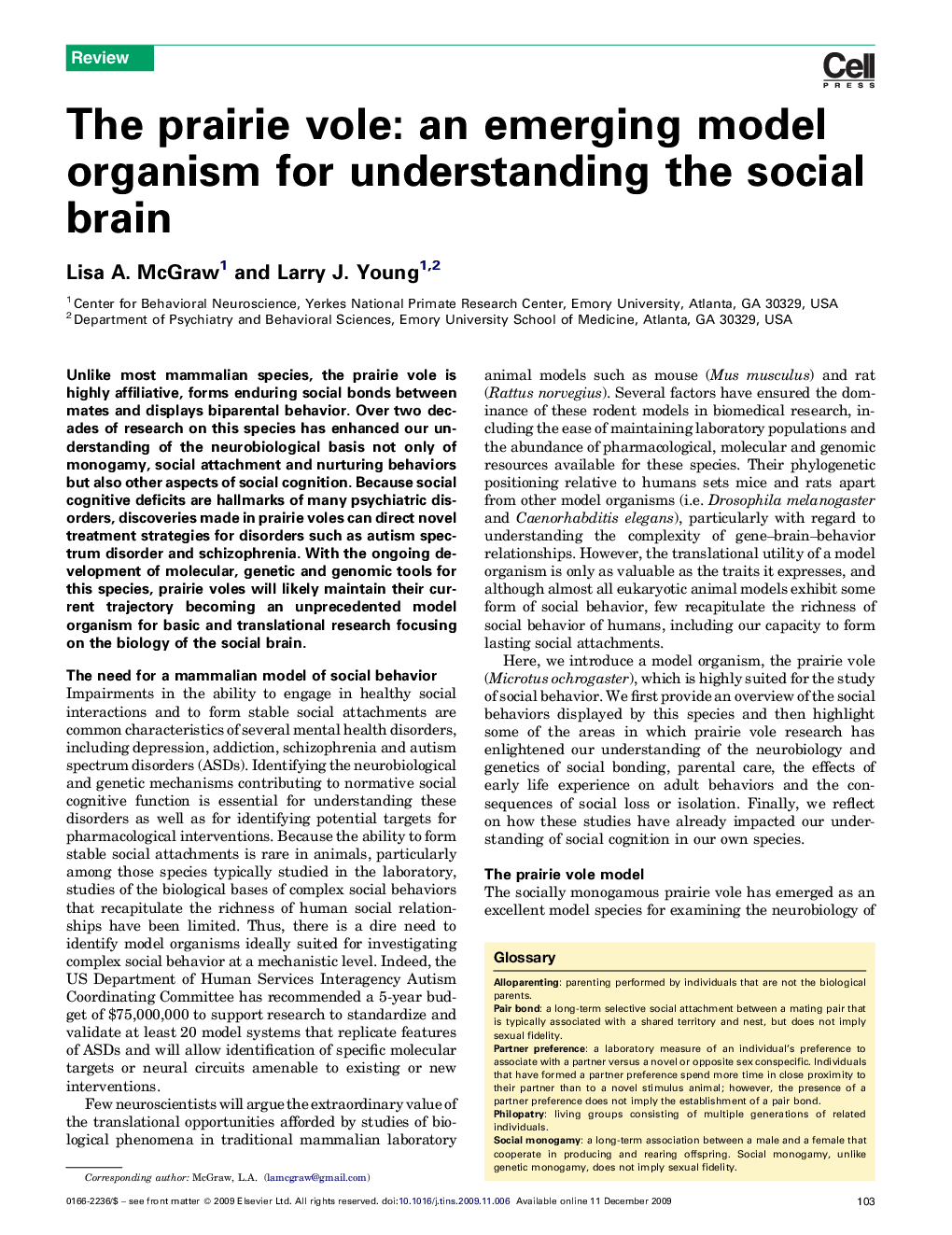| Article ID | Journal | Published Year | Pages | File Type |
|---|---|---|---|---|
| 4354571 | Trends in Neurosciences | 2010 | 7 Pages |
Unlike most mammalian species, the prairie vole is highly affiliative, forms enduring social bonds between mates and displays biparental behavior. Over two decades of research on this species has enhanced our understanding of the neurobiological basis not only of monogamy, social attachment and nurturing behaviors but also other aspects of social cognition. Because social cognitive deficits are hallmarks of many psychiatric disorders, discoveries made in prairie voles can direct novel treatment strategies for disorders such as autism spectrum disorder and schizophrenia. With the ongoing development of molecular, genetic and genomic tools for this species, prairie voles will likely maintain their current trajectory becoming an unprecedented model organism for basic and translational research focusing on the biology of the social brain.
